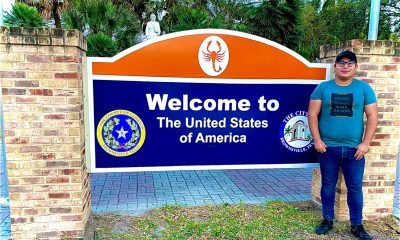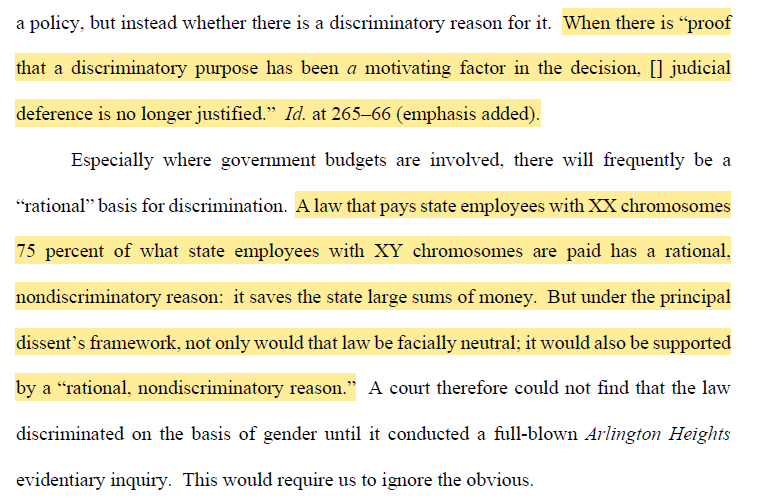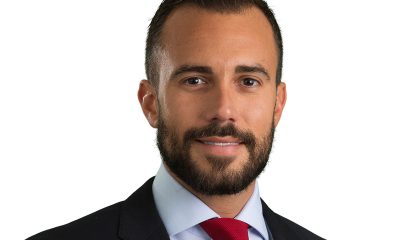National
Jesse Jackson names Rainbow PUSH Coalition successor
White House praised civil rights icon
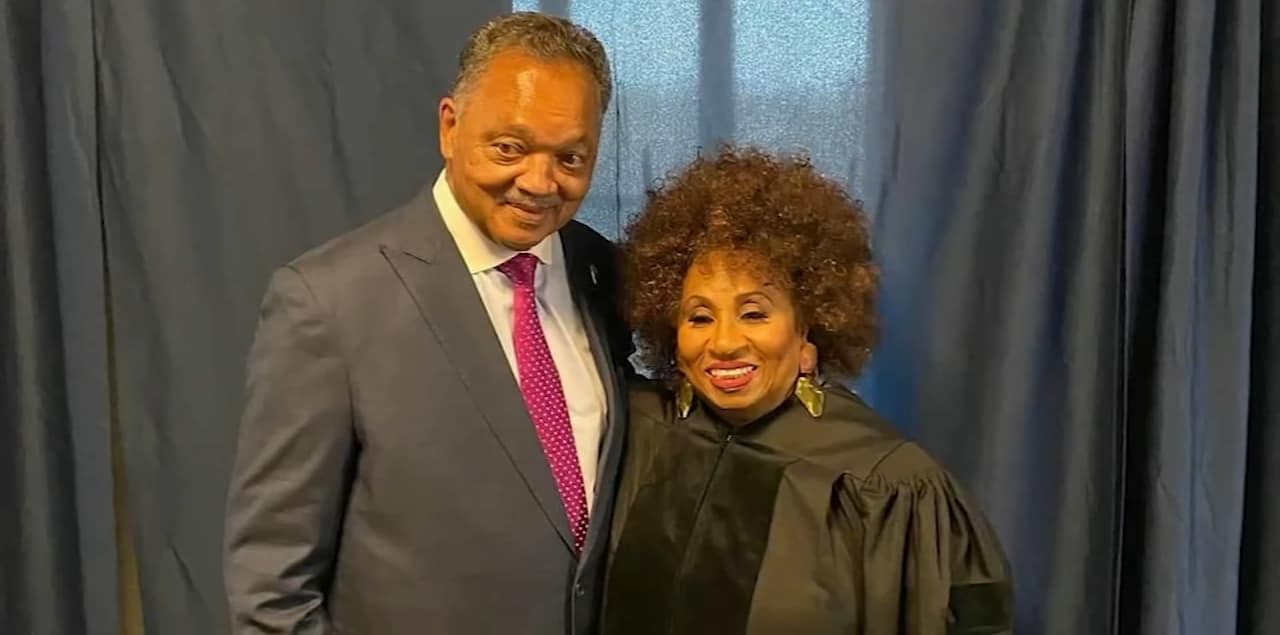
During the annual meeting of the Rainbow PUSH Coalition civil rights organization he founded and has headed for over 5 decades, Rev. Jesse Jackson, Sr., formally named Rev. Dr. Frederick Haynes III of the Friendship West Baptist Church in Dallas as his successor.
The Rainbow PUSH Convention was held on Sunday at the Apostolic Church of God in the Windy City’s Woodlawn neighborhood. Also in attendance was Vice President Kamala Harris, the event’s special keynote speaker, who had arrived at Chicago’s Midway Airport earlier on Sunday morning.
“I am looking forward to this next chapter where I will continue to focus on economic justice, mentorship and teaching ministers how to fight for social justice. I will still be very involved in the organization and am proud that we have chosen Rev. Dr. Haynes as my successor,” Jackson said in a statement released by the organization.
Haynes has served as the senior pastor of Friendship West Baptist for the past four decades.
“Rev. Jackson has been a mentor and I have been greatly influenced and inspired by this game-changing social justice general, international ambassador for human rights, and prophetic genius. Sadly, justice and human rights are under attack in the nation and around the world. The work of Rainbow PUSH is as necessary as ever and I am committed to standing on the shoulders of Rev. Jackson and continuing the fight for freedom, peace, equity, justice and human rights,” Haynes said.
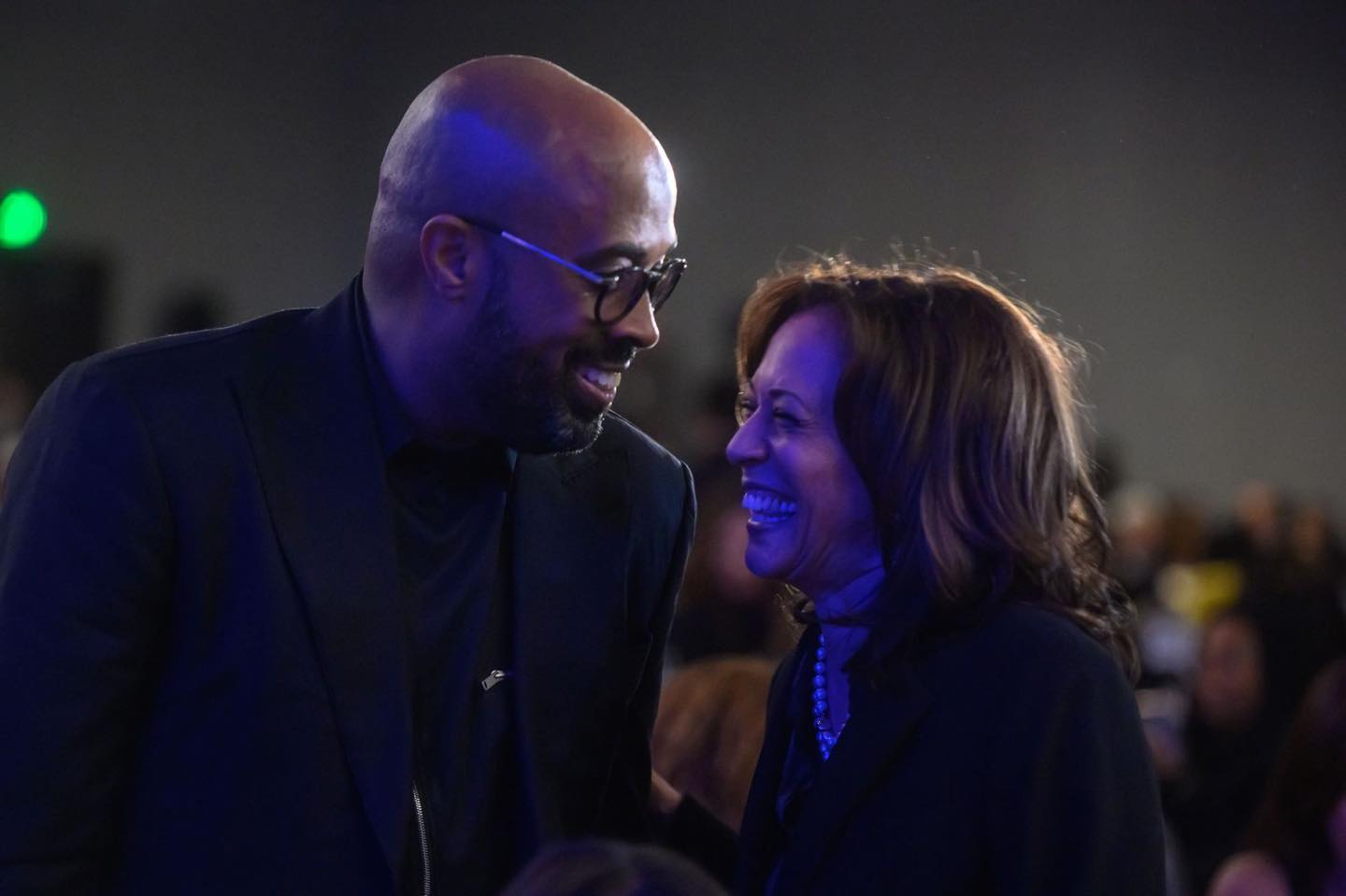
The White House released a statement from President Joe Biden, who has had a longtime working relationship and friendship with the civil rights leader for over 40 years:
“The promise of America is that we are all created equal in the image of God and deserve to be treated equally throughout our lives. While we’ve never fully lived up to that promise, we’ve never fully walked away from it because of extraordinary leaders like Rev. Jesse Jackson, Sr.
“Throughout our decades of friendship and partnership, I’ve seen how Rev. Jackson has helped lead our nation forward through tumult and triumph. Whether on the campaign trail, on the march for equality, or in the room advocating for what is right and just, I’ve seen him as history will remember him: a man of God and of the people; determined, strategic, and unafraid of the work to redeem the soul of our nation.
“Jill and I are grateful to Rev. Jackson for his lifetime of dedicated service and extend our appreciation to the entire Jackson family. We look forward to working with the Rainbow PUSH Coalition as he hands the torch to the next generation of leadership, just as we will continue to cherish the counsel and wisdom that we draw from him.”
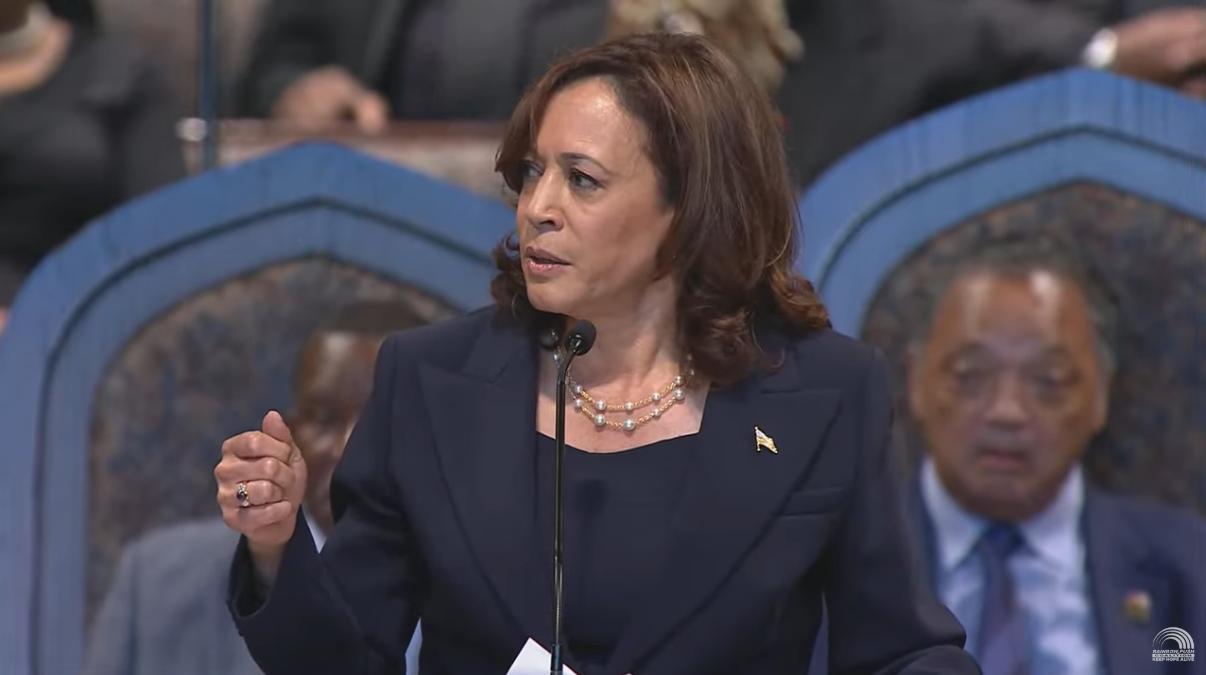
Jacquelyne Germain, political reporter from the Chicago Sun-Times and the pool reporter accompanying the vice president, reported notable quotes made during Harris’ speech included:
“So today, we celebrate one of America’s greatest patriots. Someone who deeply believes in the promise of our country.”
“At the core of Rev.’s work is the belief that the diversity of our nation is not a weakness or an afterthought, but instead, our greatest strength.”
“Early on, he even had the audacity to name this coalition the National Rainbow Coalition.
He defined the rainbow. He was one of the first to define the rainbow. A coalition to push the values of democracy and liberty and equality and justice, not from the top down but from the bottom up and the outside in. He has built coalitions that expanded who has a voice and a seat at the table.”
“Across our country, we are witnessing hard fought hard won freedoms under full on attack by extremist, so called leaders. These extremists have an agenda, an agenda to divide us as a nation, an agenda to attack the importance of diversity and equity and inclusion and the unity of the Rainbow Coalition.”
“These extremists banned books in the year of our Lord 2023. They ban books and prevent the teaching of America’s full history. All the while they refuse reasonable gun safety laws to keep our children safe. Understand what’s happening.”
“Fueled by the love of our country, just as Rev. has done his entire career, let us keep hope alive”
Jackson, 81, was an early supporter and a protégé of the iconic civil rights leader, the late Rev. Dr. Martin Luther King, Jr., starting his work with King participating in the three Selma to Montgomery marches, held in 1965 along the 54-mile highway from Selma, Ala., to the state capital of Montgomery.
King gave Jackson a role in the Southern Christian Leadership Conference (SCLC), sending Jackson to head the Chicago branch of the SCLC’s economic arm, Operation Breadbasket, which he later was appointed president of in 1967.
At 6:01 p.m. on April 4, 1968, King, SCLC leadership, Jackson and other civil rights activists who had gathered at the Lorraine Motel in Memphis, Tenn., to stand in solidarity with striking African American city sanitation workers, were on the balcony outside King’s room 306 when a shot rang out. King was leaning over the balcony railing in front of his room and was speaking with Jackson who was in the parking lot beneath the balcony.
The bullet struck the civil rights leader in his face rendering him unconsciousness and he was rushed to St. Joseph’s Hospital, where doctors opened his chest and performed cardiopulmonary resuscitation. King never regained consciousness and died at 7:05 p.m. whereupon in the aftermath, post-assassination rioting broke out in major cities across the nation.
On April 3, 2018, on the eve of the 50th anniversary of the assassination, Jackson spoke with a reporter from Scripps News about the events of that night:
In the years following the death of King, tensions between Jackson and King’s successor as chairman of the SCLC, Rev. Ralph Abernathy, created a rift that escalated until early December 1971, when Jackson, his entire Breadbasket staff and 30 of the 35 SCLC board members resigned and began planning a new organization which formed the basis for People United to Save Humanity (Operation PUSH) which officially began operations on Dec. 25, 1971, based in Chicago.
In 1984 Jackson organized the Rainbow Coalition and resigned his post as president of Operation PUSH to run for president. He became the second Black American to run a national campaign for president in a major party’s primary.
Twelve years previously in 1972, Shirley Chisholm, a Democratic representative from New York’s 12th Congressional District, centered on Brooklyn’s Bedford–Stuyvesant neighborhood, was the first Black person, male or female, to run for president within a major party, and Chisholm became the first woman to run for the Democratic Party’s presidential nomination.
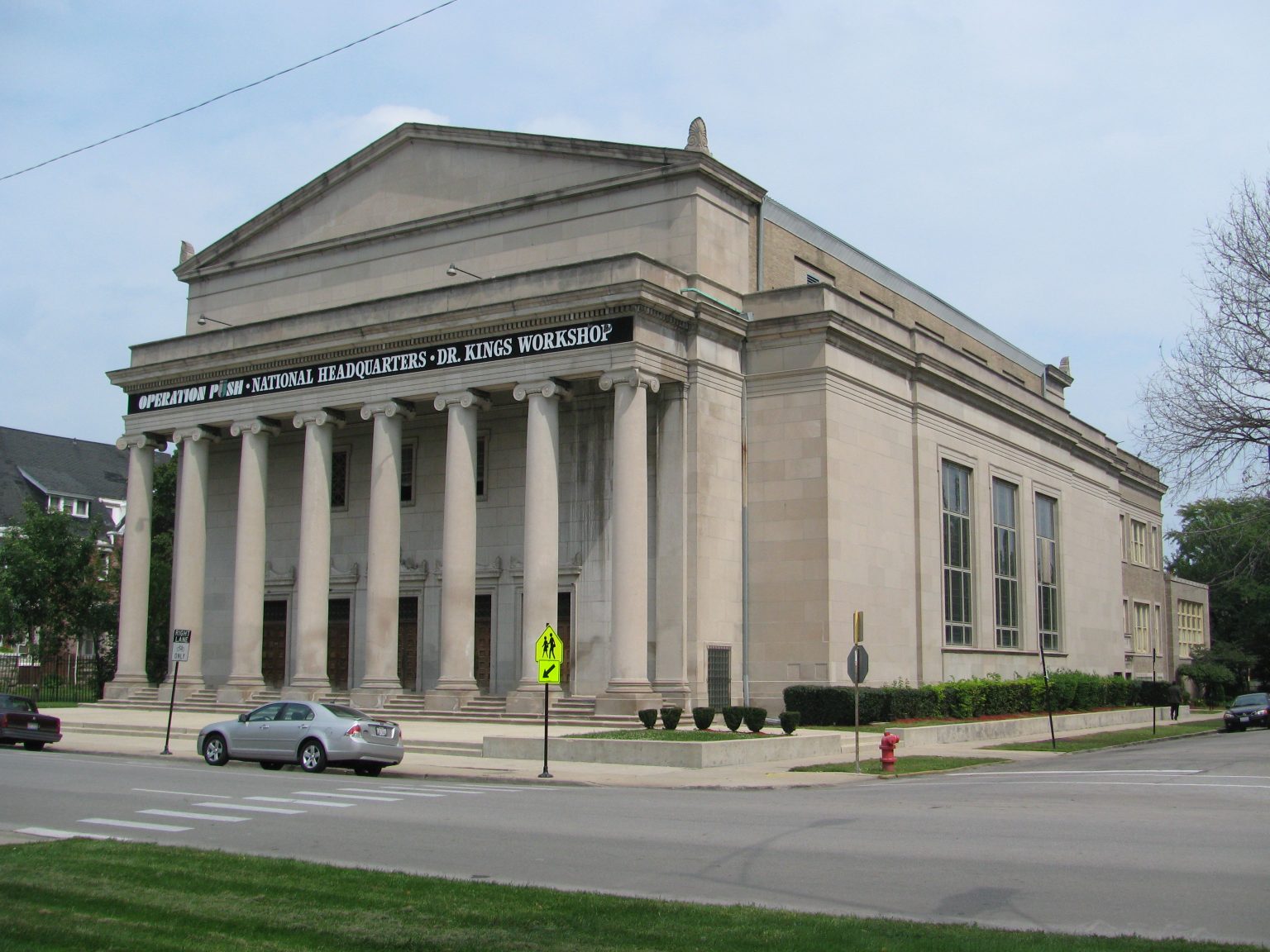
The Democratic primary campaign races for president was a national political watershed moment for the country’s LGBTQ community. It marked the first time that all of the party’s leading candidates had sought the endorsement of LGBTQ organizations.
At the national Democratic convention held at the Moscone Center in San Francisco in 1984, Jackson became the first candidate to deliver a speech to mention gays and lesbians. In what became known as his “Rainbow Coalition” speech, Jackson said:
[…] “Our party is emerging from one of its most hard fought battles for the Democratic Party’s presidential nomination in our history. But our healthy competition should make us better, not bitter. We must use the insight, wisdom, and experience of the late Hubert Humphrey as a balm for the wounds in our party, this nation and the world. We must forgive each other, redeem each other, regroup and move one. Our flag is red, white and blue, but our nation is a rainbow — red, yellow, brown, Black and white — and we’re all precious in God’s sight.
America is not like a blanket — one piece of unbroken cloth, the same color, the same texture, the same size. America is more like a quilt: Many patches, many pieces, many colors, many sizes, all woven and held together by a common thread. The white, the Hispanic, the Black, the Arab, the Jew, the woman, the native American, the small farmer, the businessperson, the environmentalist, the peace activist, the young, the old, the lesbian, the gay and the disabled make up the American quilt.” […]
Jackson decided to make a second run for the presidency in 1987.
On Oct. 11, 1987, at the National March on Washington for Lesbian and Gay Rights, which was thematically honing in on the HIV/AIDS crisis that had enveloped the LGBTQ community, among the speakers at the march rally, held on the grounds of the U.S. Capitol, was presidential candidate Jackson along with gay U.S. Reps. Barney Frank and Gerry Studds, both Democrats from Massachusetts; former National Organization for Women President Eleanor Smeal and United Farm Workers Union President Cesar Chavez.
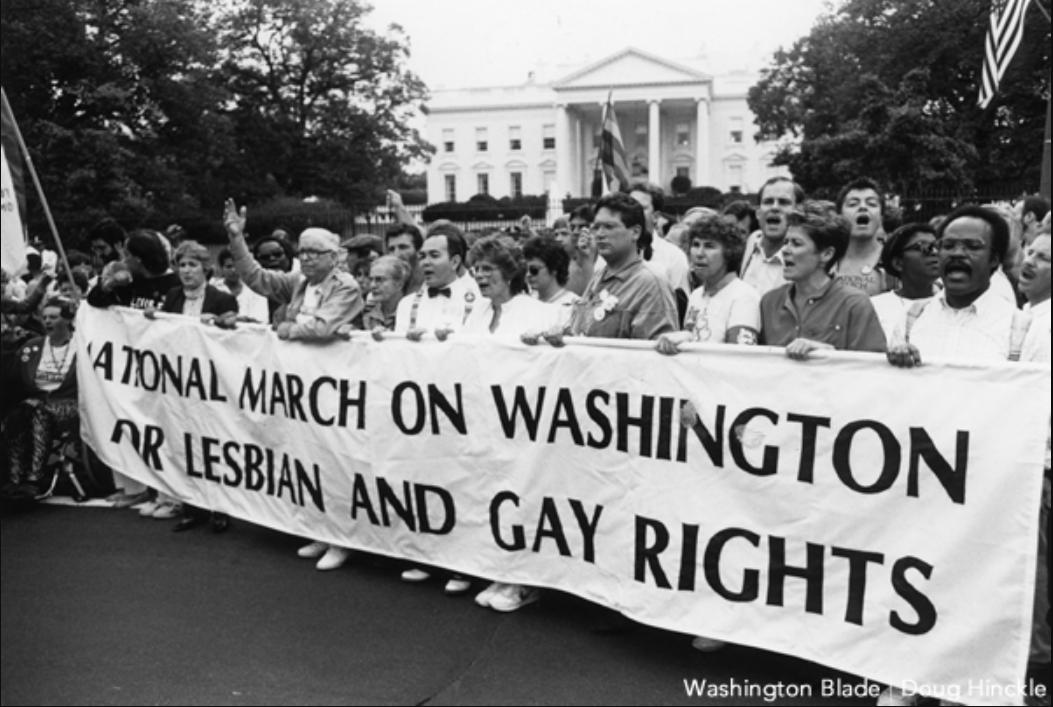
In his remarks, Jackson told the crowd of approximately 300,000:
“We gather today to say that we insist on equal protection under the law for every American, for workers’ rights, women’s rights, for the rights of religious freedom, the rights of individual privacy, for the rights of sexual preference. We come together for the rights of all American people.”
During the 1987 primary campaign, Jackson would often spar with the party’s frontrunner, Massachusetts Gov. Michael Dukakis over the governor’s apparent lack of proactive concern over the HIV/AIDS pandemic that had gripped the LGBTQ community with thousands dying from the disease. Additionally, there were many leaders in the LGBTQ community who viewed Dukakis as homophobic.
Former Washington Post writer Howard Kurtz, in his April 15, 1988, column reported that during a March primary debate, Jackson drew cheers from a vocal gay contingent at the debate when he spoke of the AIDS “hysteria.” Recalling the March on Washington, he said: “I saw people in their wheelchairs who are dying of AIDS . . . Not one of the {Reagan administration} officials would come downstairs and shake their hand.”
Kurtz also noted:
“Dukakis is someone who has gone out of his way to hurt us,” said David Taylor, president of Manhattan’s Gay and Lesbian Independent Democrats, a 400-member club that has endorsed Jackson.
The contest for gay voters is almost a microcosm of the larger campaign: While Jackson moves gays with his eloquent speeches on gay rights, Dukakis takes a more measured approach and finds himself pinned down on specifics from his tenure as governor, Kurtz reported.
After the 1988 campaign, Jackson, now living in D.C., ran for the office of “shadow senator” when the position was created in 1991, serving until 1997, when he did not run for reelection. This unpaid position was primarily a post to lobby for D.C. statehood.
While he declared that he would not be a candidate again for president, he and frontrunner Arkansas Gov. Bill Clinton had a series of public disagreements after Jackson called for the creation of “new democratic majority.”
On April 26, 1992, Jackson and Clinton had a 40-minute meeting and emerged to announce that they were both committed to defeating Bush in the general election. Asked if he was ready to endorse Clinton, Jackson said,
“Well, if he wins the nomination of our party, he would be well on his way. We need a new president and we need a new direction. We cannot afford any more of what George Bush represents,” the New York Times reported.
The National Rainbow Coalition held a leadership conference June 13, 1992, entitled “Rebuild America: 1992 and Beyond,” Jackson and Clinton appearing together spoke about their plans for the future of the U.S.
Over the course of the 1990s Jackson devoted his time and efforts to stemming the rising gun violence, along with efforts to further advance civil rights for the disenfranchised minority communities. He also worked on the campaign for his son Jesse Jackson, Jr., who was elected to the U.S. House of Representatives as congressman from Illinois’s 2nd congressional district who served from 1995 until his resignation in 2012.
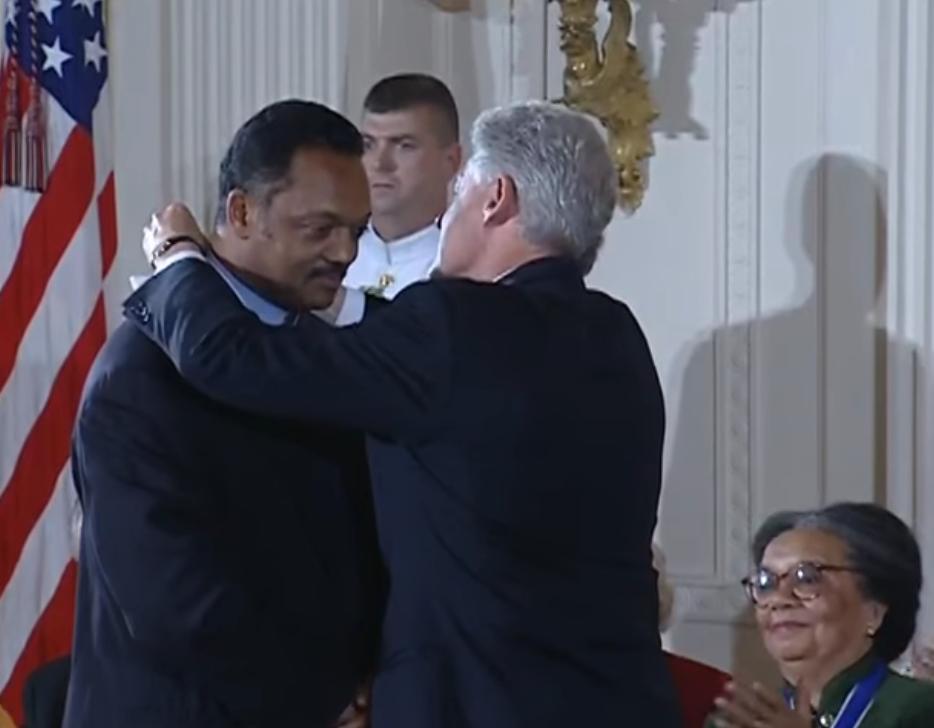
On March 1, 2000, Jackson announced his support of and endorsed Clinton’s vice president, Al Gore, for the latter’s presidential run. After George W. Bush won, Jackson was a vocal opponent of the Bush administration’s policies.
During the course of the rest of the decade Jackson was active in social and cultural issues often being present at numerous protests. One notable incident occurred in November 2006, after a white comedian, former Seinfeld actor Michael Richards launched into onstage racist tirade at the Laugh Factory in Hollywood directed at a Black audience member.
CNN later reported that Richards had called Jackson a few days after the incident to apologize; Jackson accepted Richards’ apology and met with him publicly as a means of resolving the situation. Jackson also joined Black leaders in a call for the elimination of the “N-word” throughout the entertainment industry.
Jackson was an early supporter of then-U.S. Sen. Barack Obama (D-Ill.) who announced his candidacy in 2007 for president. In 2012, he praised then-President Obama for his decision to support same-sex marriage and compared the fight for marriage equality to the fight against slavery and the anti-miscegenation laws that once prevented interracial marriage, a position that brought immediate criticism from conservatives — especially evangelical and Pentecostal Black pastors.
After the infamous shooting death on Feb. 26, 2012, in Sanford, Fla., of 17-year-old Trayvon Martin that brought about a national protests and in which his killer, George Zimmerman was later acquitted under Florida’s so-called ‘stand-your-ground’ law, Jackson refused to accept it, comparing the decision to the acquittals in the cases of Emmett Till and Medgar Evers decades earlier.
In the next few years he would also be vocal about the injustices and deaths of young Black males at the hands of primarily white law enforcement officials.
Jackson continued to actively work on behalf of civil rights causes as exemplified during the administration of President Donald Trump calling out some of the more blatant examples of white supremacy seemingly endorsed by Trump.
As the 2020 election neared, Jackson said that Trump had left “African Americans in the deepest hole with the shortest rope” and predicted “African Americans — and particularly African-American women — will vote overwhelmingly for Joe Biden.”
A few weeks ago, Jackson announced his plans to step down as the leader of Rainbow PUSH, following 64 years of civil rights activity within this movement. Aides said that his decision was brought about in consideration of his advanced age as well as health complications — Jackson was diagnosed with Parkinson’s disease in 2017, and was hospitalized twice in 2021, after testing positive for COVID-19 and then following a head injury.
Related:
Rainbow Push Coalition: Celebration of Rev. Jackson’s life’s work:
National
United Methodist Church removes 40-year ban on gay clergy
Delegates also voted for other LGBTQ-inclusive measures
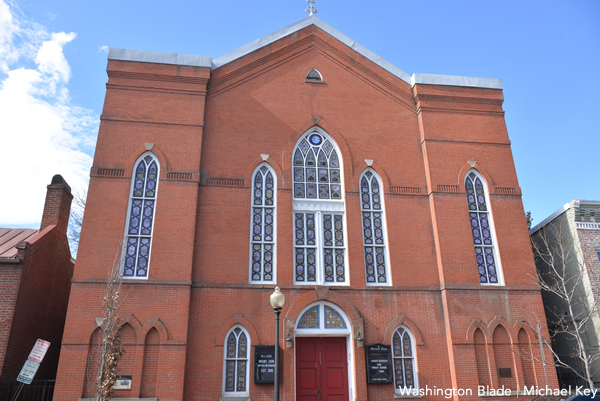
The United Methodist Church on Wednesday removed a ban on gay clergy that was in place for more than 40 years, voting to also allow LGBTQ weddings and end prohibitions on the use of United Methodist funds to “promote acceptance of homosexuality.”
Overturning the policy forbidding the church from ordaining “self-avowed practicing homosexuals” effectively formalized a practice that had caused an estimated quarter of U.S. congregations to leave the church.
The New York Times notes additional votes “affirming L.G.B.T.Q. inclusion in the church are expected before the meeting adjourns on Friday.” Wednesday’s measures were passed overwhelmingly and without debate. Delegates met in Charlotte, N.C.
According to the church’s General Council on Finance and Administration, there were 5,424,175 members in the U.S. in 2022 with an estimated global membership approaching 10 million.
The Times notes that other matters of business last week included a “regionalization” plan, which gave autonomy to different regions such that they can establish their own rules on matters including issues of sexuality — about which international factions are likelier to have more conservative views.
Rev. Kipp Nelson of St. Johns’s on the Lake Methodist Church in Miami shared a statement praising the new developments:
“It is a glorious day in the United Methodist Church. As a worldwide denomination, we have now publicly proclaimed the boundless love of God and finally slung open the doors of our church so that all people, no matter their identities or orientations, may pursue the calling of their hearts.
“Truly, all are loved and belong here among us. I am honored to serve as a pastor in the United Methodist Church for such a time as this, for our future is bright and filled with hope. Praise be, praise be.”
Federal Government
Republican state AGs challenge Biden administration’s revised Title IX policies
New rules protect LGBTQ students from discrimination

Four Republicans state attorneys general have sued the Biden-Harris administration over the U.S. Department of Education’s new Title IX policies that were finalized April 19 and carry anti-discrimination protections for LGBTQ students in public schools.
The lawsuit filed on Tuesday, which is led by the attorneys general of Kentucky and Tennessee, follows a pair of legal challenges from nine Republican states on Monday — all contesting the administration’s interpretation that sex-based discrimination under the statute also covers that which is based on the victim’s sexual orientation or gender identity.
The administration also rolled back Trump-era rules governing how schools must respond to allegations of sexual harassment and sexual assault, which were widely perceived as biased in favor of the interests of those who are accused.
“The U.S. Department of Education has no authority to let boys into girls’ locker rooms,” Tennessee Attorney General Jonathan Skrmetti said in a statement. “In the decades since its adoption, Title IX has been universally understood to protect the privacy and safety of women in private spaces like locker rooms and bathrooms.”
“Florida is suing the Biden administration over its unlawful Title IX changes,” Florida Gov. Ron DeSantis wrote on social media. “Biden is abusing his constitutional authority to push an ideological agenda that harms women and girls and conflicts with the truth.”
After announcing the finalization of the department’s new rules, Education Secretary Miguel Cardona told reporters, “These regulations make it crystal clear that everyone can access schools that are safe, welcoming and that respect their rights.”
The new rule does not provide guidance on whether schools must allow transgender students to play on sports teams corresponding with their gender identity to comply with Title IX, a question that is addressed in a separate rule proposed by the agency in April.
LGBTQ and civil rights advocacy groups praised the changes. Lambda Legal issued a statement arguing the new rule “protects LGBTQ+ students from discrimination and other abuse,” adding that it “appropriately underscores that Title IX’s civil rights protections clearly cover LGBTQ+ students, as well as survivors and pregnant and parenting students across race and gender identity.”
Federal Government
4th Circuit rules gender identity is a protected characteristic
Ruling a response to N.C., W.Va. legal challenges
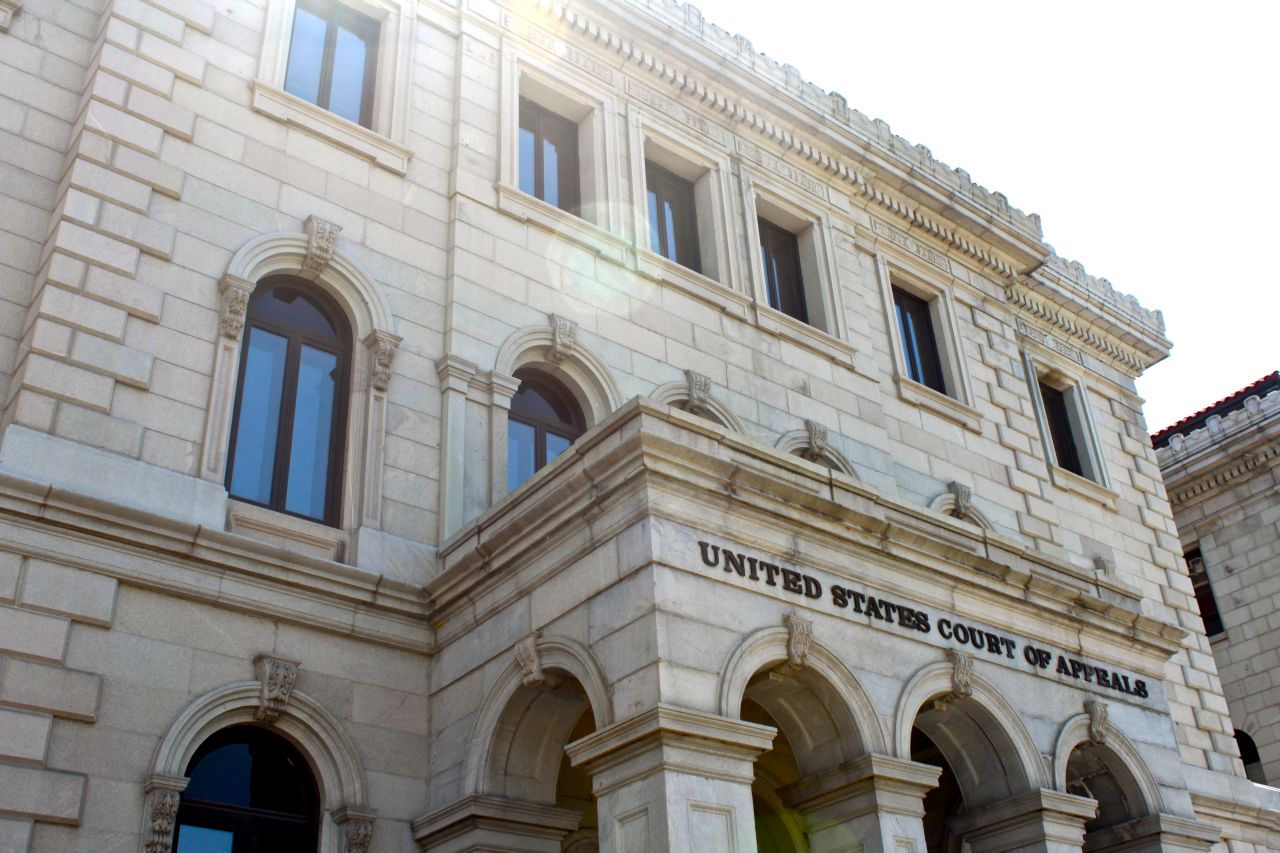
BY ERIN REED | The 4th U.S. Circuit Court of Appeals ruled Monday that transgender people are a protected class and that Medicaid bans on trans care are unconstitutional.
Furthermore, the court ruled that discriminating based on a diagnosis of gender dysphoria is discrimination based on gender identity and sex. The ruling is in response to lower court challenges against state laws and policies in North Carolina and West Virginia that prevent trans people on state plans or Medicaid from obtaining coverage for gender-affirming care; those lower courts found such exclusions unconstitutional.
In issuing the final ruling, the 4th Circuit declared that trans exclusions were “obviously discriminatory” and were “in violation of the equal protection clause” of the Constitution, upholding lower court rulings that barred the discriminatory exclusions.
The 4th Circuit ruling focused on two cases in states within its jurisdiction: North Carolina and West Virginia. In North Carolina, trans state employees who rely on the State Health Plan were unable to use it to obtain gender-affirming care for gender dysphoria diagnoses.
In West Virginia, a similar exclusion applied to those on the state’s Medicaid plan for surgeries related to a diagnosis of gender dysphoria. Both exclusions were overturned by lower courts, and both states appealed to the 4th Circuit.
Attorneys for the states had argued that the policies were not discriminatory because the exclusions for gender affirming care “apply to everyone, not just transgender people.” The majority of the court, however, struck down such a claim, pointing to several other cases where such arguments break down, such as same-sex marriage bans “applying to straight, gay, lesbian, and bisexual people equally,” even though straight people would be entirely unaffected by such bans.
Other cases cited included literacy tests, a tax on wearing kippot for Jewish people, and interracial marriage in Loving v. Virginia.
See this portion of the court analysis here:
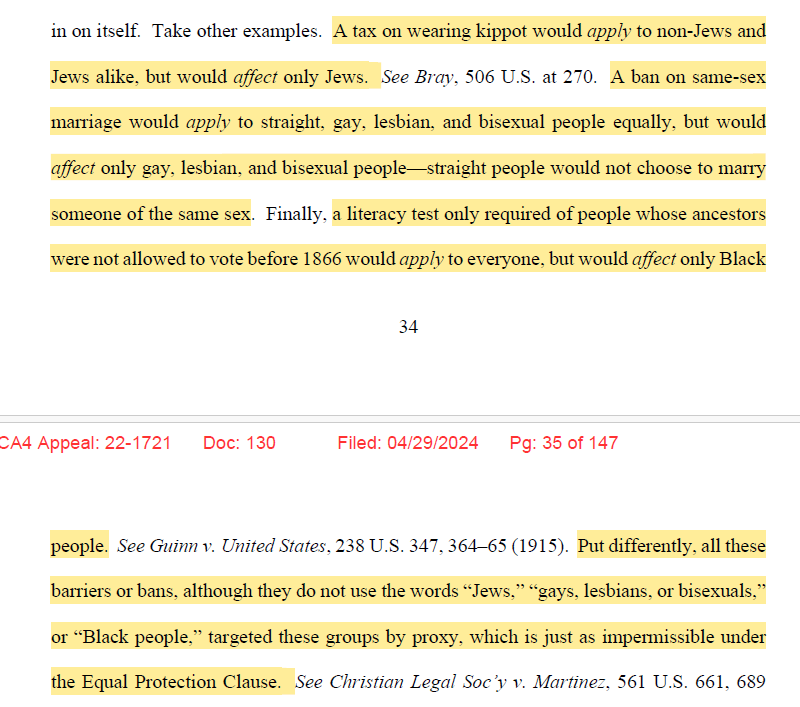
Of particular note in the majority opinion was a section on Geduldig v. Aiello that seemed laser-targeted toward an eventual U.S. Supreme Court decision on discriminatory policies targeting trans people. Geduldig v. Aiello, a 1974 ruling, determined that pregnancy discrimination is not inherently sex discrimination because it does not “classify on sex,” but rather, on pregnancy status.
Using similar arguments, the states claimed that gender affirming care exclusions did not classify or discriminate based on trans status or sex, but rather, on a diagnosis of gender dysphoria and treatments to alleviate that dysphoria.
The majority was unconvinced, ruling, “gender dysphoria is so intimately related to transgender status as to be virtually indistinguishable from it. The excluded treatments aim at addressing incongruity between sex assigned at birth and gender identity, the very heart of transgender status.” In doing so, the majority cited several cases, many from after Geduldig was decided.
Notably, Geduldig was cited in both the 6th and 11th Circuit decisions upholding gender affirming care bans in a handful of states.
The court also pointed to the potentially ridiculous conclusions that strict readings of what counts as proxy discrimination could lead to, such as if legislators attempted to use “XX chromosomes” and “XY chromosomes” to get around sex discrimination policies:
Importantly, the court also rebutted recent arguments that Bostock applies only to “limited Title VII claims involving employers who fired” LGBTQ employees, and not to Title IX, which the Affordable Care Act’s anti-discrimination mandate references. The majority stated that this is not the case, and that there is “nothing in Bostock to suggest the holding was that narrow.”
Ultimately, the court ruled that the exclusions on trans care violate the Equal Protection Clause of the Constitution. The court also ruled that the West Virginia Medicaid Program violates the Medicaid Act and the anti-discrimination provisions of the Affordable Care Act.
Additionally, the court upheld the dismissal of anti-trans expert testimony for lacking relevant expertise. West Virginia and North Carolina must end trans care exclusions in line with earlier district court decisions.
The decision will likely have nationwide impacts on court cases in other districts. The case had become a major battleground for trans rights, with dozens of states filing amicus briefs in favor or against the protection of the equal process rights of trans people. Twenty-one Republican states filed an amicus brief in favor of denying trans people anti-discrimination protections in healthcare, and 17 Democratic states joined an amicus brief in support of the healthcare rights of trans individuals.
Many Republican states are defending anti-trans laws that discriminate against trans people by banning or limiting gender-affirming care. These laws could come under threat if the legal rationale used in this decision is adopted by other circuits. In the 4th Circuit’s jurisdiction, West Virginia and North Carolina already have gender-affirming care bans for trans youth in place, and South Carolina may consider a similar bill this week.
The decision could potentially be used as precedent to challenge all of those laws in the near future and to deter South Carolina’s bill from passing into law.
The decision is the latest in a web of legal battles concerning trans people. Earlier this month, the 4th Circuit also reversed a sports ban in West Virginia, ruling that Title IX protects trans student athletes. However, the Supreme Court recently narrowed a victory for trans healthcare from the 9th U.S. Circuit Court of Appeals and allowed Idaho to continue enforcing its ban on gender-affirming care for everyone except the two plaintiffs in the case.
Importantly, that decision was not about the constitutionality of gender-affirming care, but the limits of temporary injunctions in the early stages of a constitutional challenge to discriminatory state laws. It is likely that the Supreme Court will ultimately hear cases on this topic in the near future.
Celebrating the victory, Lambda Legal Counsel and Health Care Strategist Omar Gonzalez-Pagan said in a posted statement, “The court’s decision sends a clear message that gender-affirming care is critical medical care for transgender people and that denying it is harmful and unlawful … We hope this decision makes it clear to policy makers across the country that health care decisions belong to patients, their families, and their doctors, not to politicians.”
****************************************************************************

Erin Reed is a transgender woman (she/her pronouns) and researcher who tracks anti-LGBTQ+ legislation around the world and helps people become better advocates for their queer family, friends, colleagues, and community. Reed also is a social media consultant and public speaker.
******************************************************************************************
The preceding article was first published at Erin In The Morning and is republished with permission.



